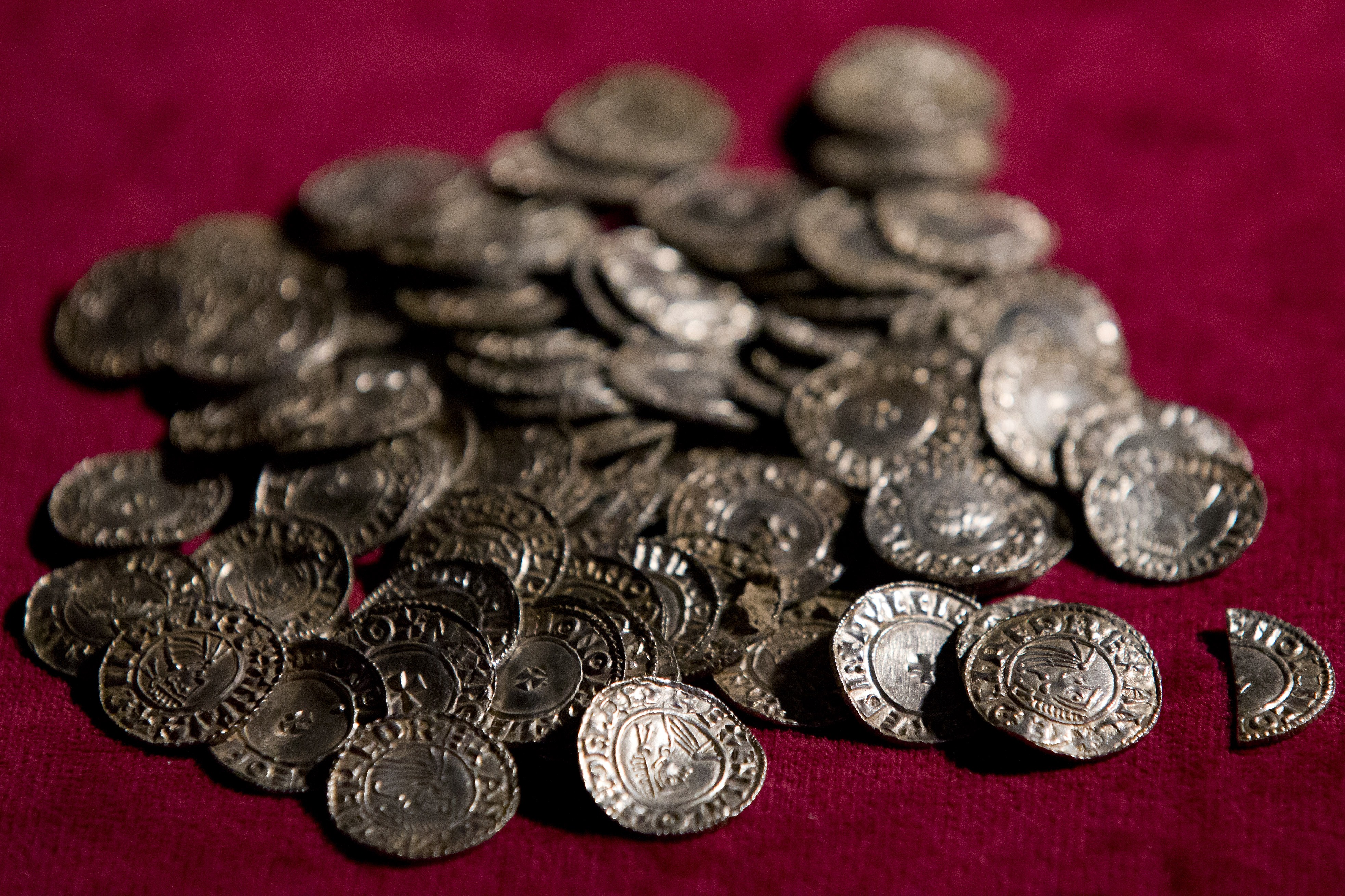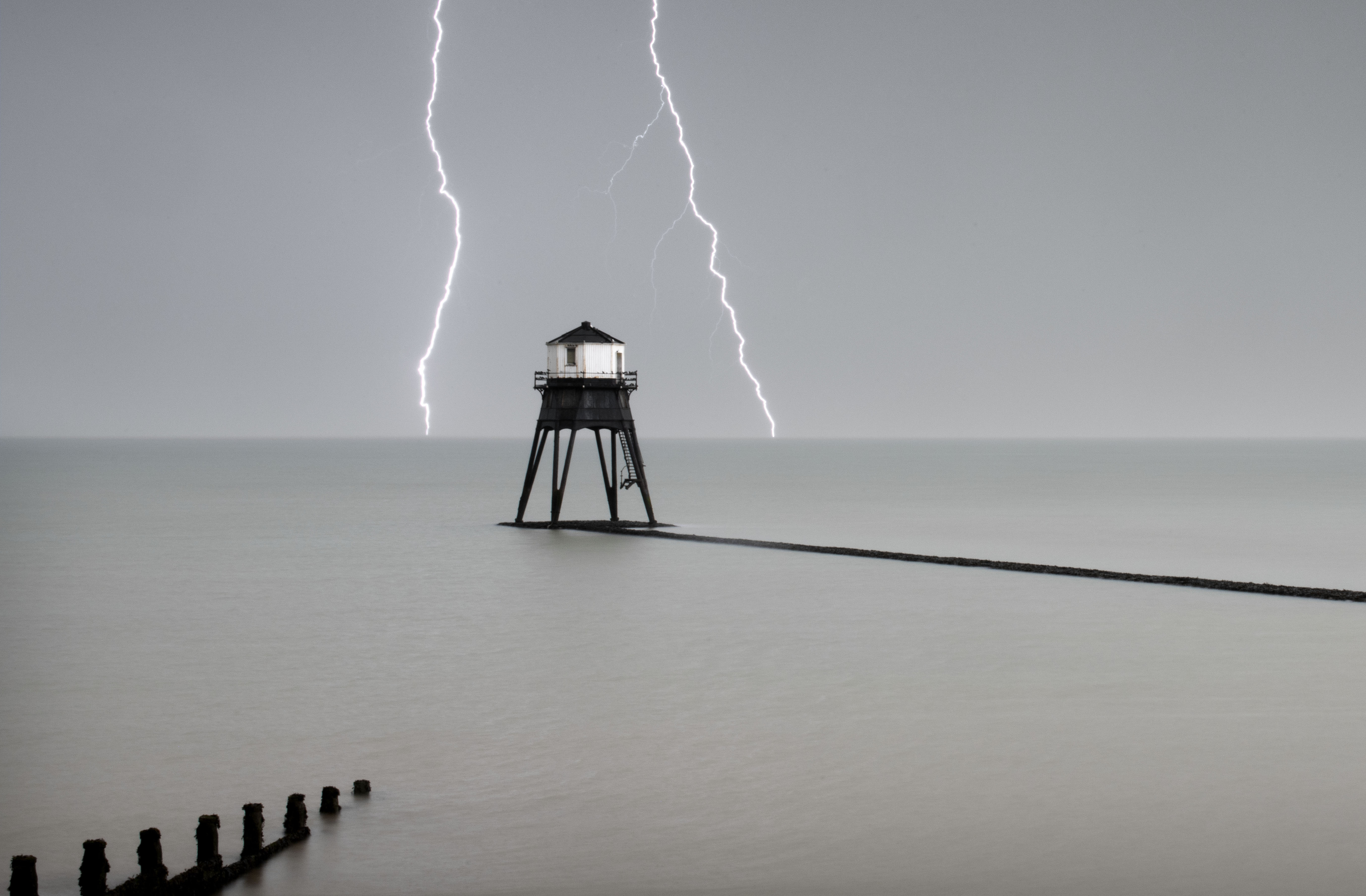The Saxon treasure hoarders 'have been convicted of a crime that they needn’t have committed'
Treasure theft made the headlines after two metal detectorists were convicted of stealing a £3-million Viking hoard, but an expert thinks cases are actually decreasing compared to the past.


Exquisite houses, the beauty of Nature, and how to get the most from your life, straight to your inbox.
You are now subscribed
Your newsletter sign-up was successful
News that a stash of Saxon coins stolen by two metal detectorists could change our view of early English history has put the spotlight on treasure theft, when significant findings are lost to the nation because the people that chance upon them hide them and sell them illegally.
Hobbyists George Powell and Layton Davies were jailed on Friday — for 10 and 8.5 years respectively — for stealing and concealing a hoard of 300 coins, pieces of early medieval jewellery and other artefacts that they had found in a Herefordshire field in 2015.
Only 31 coins and some jewellery have been recovered thus far but they, together with images retrieved from the phones of the two metal detectorists, have been enough for archaeologists to note their importance.
Thought to be part of a Viking haul, the coins date from Saxon times and share the same design, despite coming from different parts of England — showing that there may have been an alliance between the kingdom of Wessex, then ruled by Alfred the Great, and that of Mercia, ruled by Ceolwulf II.
'If someone digs something up, it’s not their property'
However, most of the treasure has been lost, leading archaeologists and museum curators to decry a crime that deprives the entire country of its heritage, with Ian Richardson of the British Museum telling the BBC that ‘the number of cases of people being convicted for [this kind of] theft has increased’ since he started doing his job in 2007.
The law requires people to report any find, within 14 days, to a local coroner, who establishes whether or not they are treasure (which is defined as any 300-year-old artefact containing a certain amount of gold or silver, or found alongside objects that contain precious metals, although the Government is planning on widening the definition to prevent relics such as the Roman Crosby Garrett helmet, which was made of a copper alloy, slipping through the net).
If the objects are classified as treasure, they must be offered to a museum, with the finder receiving a reward set by the Treasure Valuation Committee, which is an independent board of appointed experts.
Exquisite houses, the beauty of Nature, and how to get the most from your life, straight to your inbox.
Among the Committee members is numismatist and author Richard Falkiner, who has been on the valuation panel since the current version of the Treasure Act came into force in 1996. Historically, he explains, the legal framework was different and ‘there was a time, in the 1990s when there was an element of distrust among experts and people who found things by chance or by metal detecting.’ This made it more tempting for finders to conceal valuables.
'These particular finders were greedy and stupid. They have been convicted of a crime that they needn’t have committed'
However, ‘since the revised act of 1996 tidied the whole thing up, there has been more trust put in the valuations given by the panel’ and today, anyone who hides treasure is not just dishonest but also daft, in Mr Falkiner’s view.
‘If someone digs something up, it’s not their property. If it doesn’t belong to somebody because it was lost, it belongs to the state. The state then pays you a reward for finding it. The point about a reward is that it’s tax free, because it’s not a payment, and the experts on the panel give what we call “a willing buyer, willing seller” valuation [to set the figure].
‘So it’s not only against the law and dishonest to hide something you find, but it’s also thick. Because if you steal something and sell it by auction or even by private treaty, you are paying a commission, which, if you are rewarded, you are not paying. You are not going to take home as much money as if you had behaved legally.’
For this reason, Mr Falkiner disagrees with the British Museum’s Mr Richardson's view of treasure theft, and thinks that, overall, ‘the concealing of any major find is considerably rarer now than it was 25 years ago.’
Occasionally, of course, there will be people who are simultaneously uninformed and over-greedy. ‘They find a bit of gold, go down the pub and someone says: “Oh, I saw one of those fetching £100,000 somewhere.” But it’s not necessarily the same item. So when the valuation come saying it’s only worth £10,000, they get all suspicious and think they are being twisted.’
Although these people are the exception rather than the rule, ‘they are the ones that cause the difficulty.’ He thinks the metal detectorists in the Herefordshire case fall firmly into this camp. ‘I think these particular finders were greedy and stupid. They have been convicted of a crime that they needn’t have committed.’

Heritage loss for Britain as a chunk of 1000-year-old Lewes Castle's curtain wall collapses
Thankfully, no one was injured in the fall of the standalone wall, which was privately owned. The main body of

'Our heritage needs to be saved': Treasured lighthouses among historic buildings at risk
England's oldest surviving timber trestle bridge, a Grade II lift and 19th century lighthouses are some of the historic buildings
Carla must be the only Italian that finds the English weather more congenial than her native country’s sunshine. An antique herself, she became Country Life’s Arts & Antiques editor in 2023 having previously covered, as a freelance journalist, heritage, conservation, history and property stories, for which she won a couple of awards. Her musical taste has never evolved past Puccini and she spends most of her time immersed in any century before the 20th.
